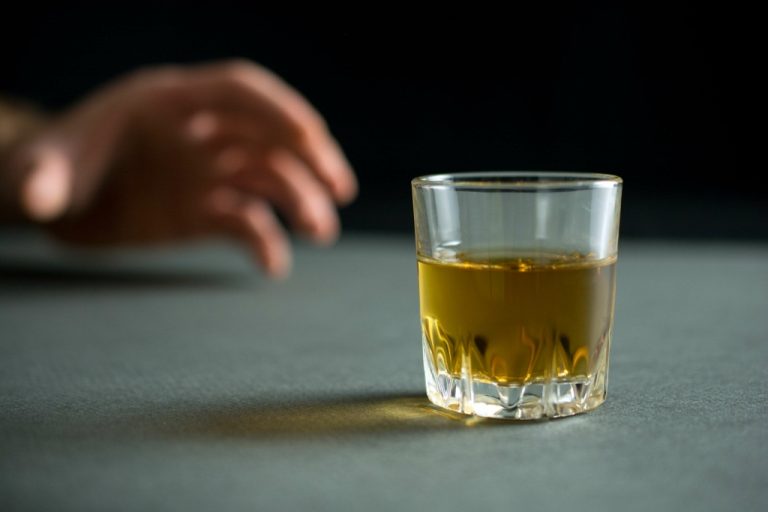Alcohol Tapering Avoiding the Symptoms of Alcohol Withdrawal
Interactions with healthcare providers in general and regarding cannabis were also noted. As with withdrawal symptom management, cannabis was one several strategies people used to manage pain. Other people mentioned injury or chronic pain as being related to the first time they used opioid pills (but not in relation to cannabis use).
- People addicted to Librium may also “doctor shop” for prescriptions, lie or hide their use.
- Even though tapering off your alcohol consumption is one of the best ways to stop drinking, it’s important to note that this will need to be done with professional help.
- At Monument, you can join a free community of over 60,000 members also working to change their relationship with alcohol, and explore treatment options like therapy and medication to stop drinking.
- Sometimes, they may experience seizures and delirium tremens (DTs).
Can You Stop Drinking Alcohol Cold Turkey?
By allowing your body to adjust to progressively lower Librium doses, you can avoid the abrupt changes to your brain chemistry that would otherwise occur if you quit the drug cold turkey. Some people choose to taper more quickly by cutting the amounts in half–for example 20, 10 5, 2, 0. But if you start having major withdrawal symptoms like bad shakes or pulse over 100 or high blood pressure you are tapering too fast and should slow it down.
Why Is Alcohol Withdrawal Dangerous?
Always remember that if the taper is not working for you or if you are having major withdrawal that it is safest to check into a medical detox because alcohol withdrawal can kill you. If you have been drinking 20 or more standard drinks a day then we recommend that on the first day of your taper you drink one beer per hour starting when you wake up in the morning for a total of 16 beers the first day. On the second day drink one beer every hour and a half for a total of ten beers. Then continue to taper down by reducing the amounts by two beers per day until you are down to zero.
Can Tapering Your Alcohol Intake Reduce Withdrawal Symptoms?
- Then continue to taper down by reducing the amounts by two beers per day until you are down to zero.
- Remember your motivation for cutting back and set realistic goals.
- Tapering is a much more controlled way of weaning off the drug and can help you avoid withdrawal.
- Whether you decide to taper down your alcohol use or safely begin with abstinence, having a sobriety toolkit and support system will be the most important factor towards success in reaching your goals.
- Getting professional treatment and long-term support are two of the most valuable strategies for avoiding relapse.
Unlike inpatient treatment, tapering allows people to maintain their lifestyles while improving their drinking habits. The time it takes to taper off alcohol varies based on how much Top 5 Advantages of Staying in a Sober Living House a person drinks. Regardless, The initial detoxification process may take several days. Tapering is also a strategy used by people with a substance or alcohol use disorder (AUD).

Along with withdrawal symptoms, it may be even more difficult to cut back or taper your alcohol use if you struggle with an alcohol use disorder (AUD). AUD makes it difficult to control alcohol use — it may seem like the alcohol is controlling you. A taper may not be right for you if you frequently drink https://capitaltribunenews.com/top-5-advantages-of-staying-in-a-sober-living-house/ more than you intended, try to cut back but cannot or feel that your alcohol use is affecting your life. People with AUD may be unable to quit drinking alcohol on their own or have attempted to quit before and relapsed. Long-term alcohol use can lead to alcohol use disorder (AUD) and physical dependence.

Another thing which happens when the function of the GABA receptor is enhanced by alcohol is that the brain tries to overcome this calming effect by producing more adrenaline and other similar neurotransmitters. When the alcohol is completely taken away then this adrenaline and its cousins are left to run rampant in the brain. This leads to raised blood pressure, raised pulse rate, rapid breathing, fever, hallucinations, seizures and D.T.s. If you or a loved one are struggling with alcohol or other drugs, call us now to speak with a Recovery Advocate. To successfully taper your alcohol use, finding what works best for you is important. To create an effective taper, you must know how much you drink daily on average.
- In a computational text analysis across 1.4 million Reddit posts in 63 subreddits, previous work identified common terms used to describe alternative treatments for opioid use recovery, the most common of which was kratom [32].
- We appreciate the comments from the reviewers and our responses to changes to the manuscript are noted below in bold.
- However, when you quit drinking abruptly, your body’s chemical balance will be thrown off suddenly, leading to uncomfortable side effects.
- TF-IDF avoids the potential bias of using just term frequency (i.e., raw counts of n-grams).
Challenges of Cutting Down Your Alcohol Intake

If published, this will include your full peer review and any attached files. My main reservation about the manuscript is that it’s mostly a travelogue of the space covered by the two subreddits–it’s reasonably organized, but it doesn’t set up a series of urgent/compelling questions and then give strong answers. Not having read all the downloaded material from the subreddits, I don’t know whether it’s possible to move the presentation in that direction. If there are elevator-summary points to be pulled from the material, I’d like to see them emphasized. If the material doesn’t support that approach, I’m fine with the inherent value of what’s here. The PLOS Data policy requires authors to make all data underlying the findings described in their manuscript fully available without restriction, with rare exception (please refer to the Data Availability Statement in the manuscript PDF file).


